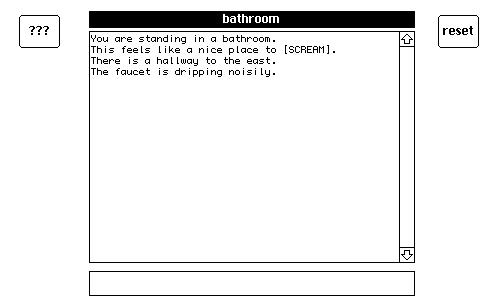Hi everyone, I'm currently working on a parser text adventure game and since it's my first time working on a game like that, I was wondering if some people would want to try a little exemple I made and tell me their opinions about it. Mainly if the game is not too confusing and easy to play, even for people who have little to no experience with that type of game. It would be greatly appreciated.
Here's the link of the exemple and the password is: decker
And feel free to use the exemple as well if you want to make your own text adventure game. The scripts were mostly inspired by these posts that I modified so they could work how I wanted to. The whole script is a little bit messy, but seems to work and I haven't seen any problems so far. Thanks



